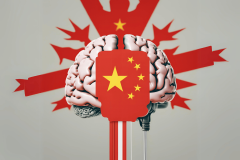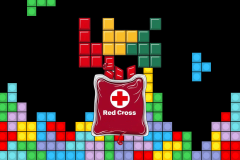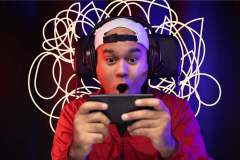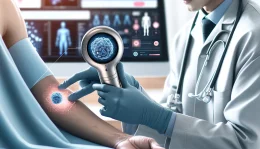Today’s healthcare industry is evolving, thanks to smart technology and the Internet of Things (IoT). These advances have created a system in which patients can visit with doctors remotely. Best of all, they can receive better diagnoses faster and overcome diseases with greater rates of success.
Investments in healthcare technology reflect this trend, as more tech companies focus on opportunities in healthcare. In the second quarter of 2019, healthcare AI companies raised $864 million, according to CB Insights data. That’s $100 million more than they raised in the second quarter of 2018.
While tech startups and their investors are heartily embracing healthcare IT, the adoption of that technology in the healthcare system hasn’t been as robust, at least in the U.S. According to a recent survey, U.S. healthcare organizations are adopting AI and telehealth solutions at much lower rates than their global counterparts.
At this point, though, there’s no longer any reason for the hesitation. Plenty of healthcare IT solutions have already more than proven their worth in many different areas. Three, in particular, have had the biggest impact so far:
1. Connected devices that enable proactive healthcare
Smart devices and IoT devices are the crux of many of today’s leading healthcare innovations. They give patients access to providers and specialists, even when physically visiting them is complex. They also give providers vital real-time data about patients. That enables providers to keep a closer eye on patient health, physical activity, and adherence to medication schedules.
For example, a proprietary tech stack for healthcare providers from mobile tech studio Dogtown Media creates a digital command center. This allows healthcare professionals to monitor diagnostics across all patients. When patients wear their connected devices, physicians can remotely track their vital signs, including blood sugar levels and medication intake.
Apple is also venturing further into the healthcare market by combining its wearable technology with health data, research, and medical device development. Smart toothbrushes, plates, beds, and clothing are becoming popular ways to track lifestyle habits. All have the potential to impact a patient’s health and treatment outcomes.
2. AI systems that offer faster, more precise diagnoses
With the data collected through remote monitoring and telehealth technologies, physicians can gain greater insight into patients’ unique health factors. To make optimal use of that information, several organizations have also invested in AI systems. Those systems, in turn, can thoroughly analyze massive amounts of data to provide highly precise diagnoses.
The early detection of chronic diseases has been a major focus of healthcare AI models; Google recently announced it will train those models to do it more effectively. In one use case, Google’s library of images helped train a healthcare AI system to successfully detect diabetic retinopathy, a leading cause of adult blindness.
At the University of California, San Francisco, researchers applied a machine learning algorithm to PET scans of patients with memory impairment. The algorithm helped predict whether patients would develop Alzheimer’s disease by searching for telltale changes in brain glucose.
3. Technologies that improve outcomes and recovery
The main goal of adopting advanced healthcare IT is to improve patient outcomes. In addition to the examples above, many solutions give providers the ability to do that directly. For instance, smart rehabilitative devices can help patients recover from severe injuries and health episodes by sensing where they need assistance most.
According to the Merraine Group, that may soon include the use of a flexible, self-powering material that recharges itself and can submit diagnostic data to healthcare professionals. The material has already been successfully used in prosthetic knee replacement and rehabilitation. Researchers hope it will soon be viable for use in other prosthetics, such as heart replacement.
Automation and machine learning help combine the data from such devices, as well as wearable trackers and diagnostic devices, into comprehensive patient health profiles. Anomalies that were previously invisible can now be easily detected, incorporated into the patient’s profile, and used to design more effective treatment plans.
The increasing number of tech companies and startups venturing into healthcare is a sure sign that healthcare IT isn’t going anywhere — except forward. Meanwhile, the many different applications that highlight technology’s contribution to improved patient health make it clear that hesitating to adopt it is no longer an option.


















